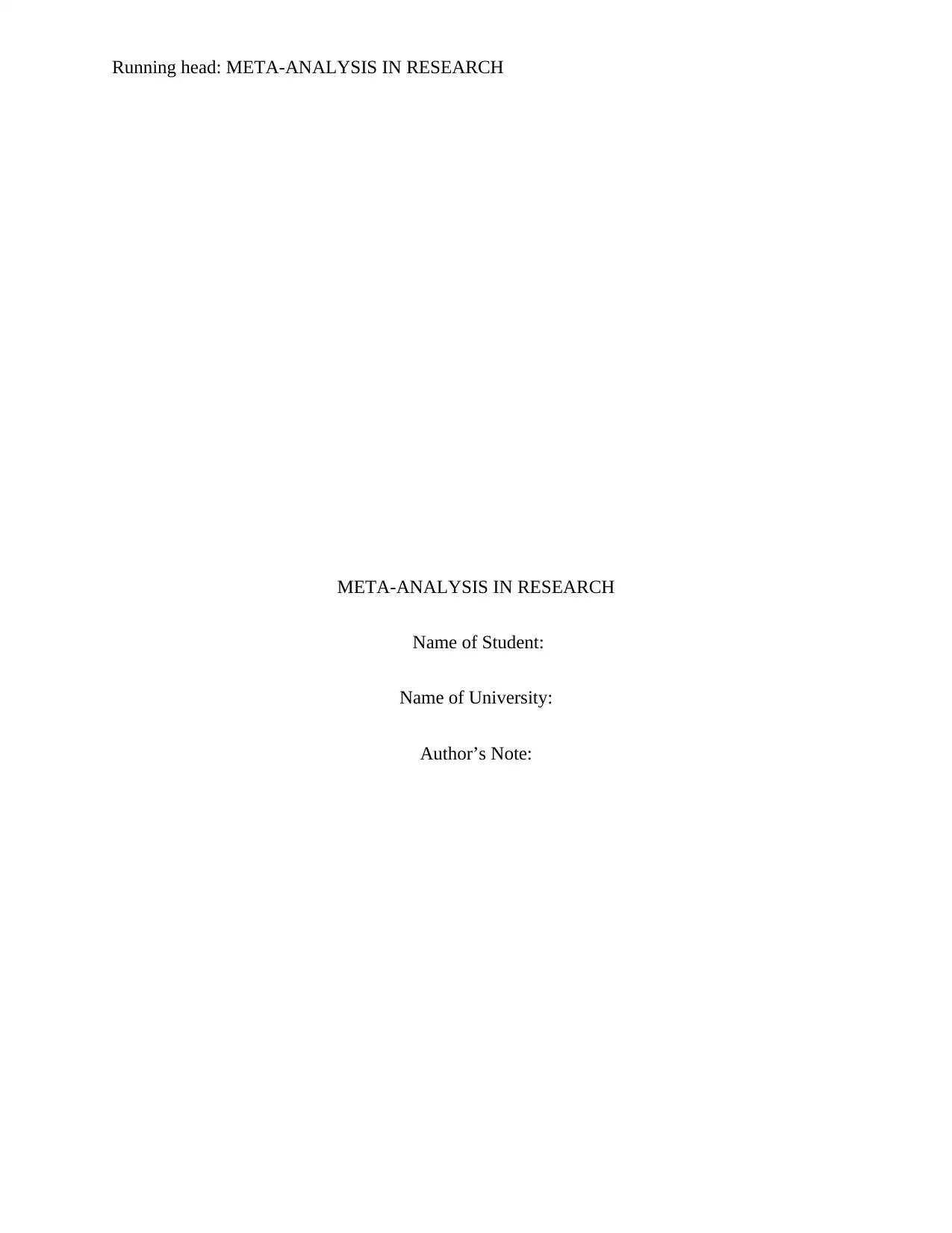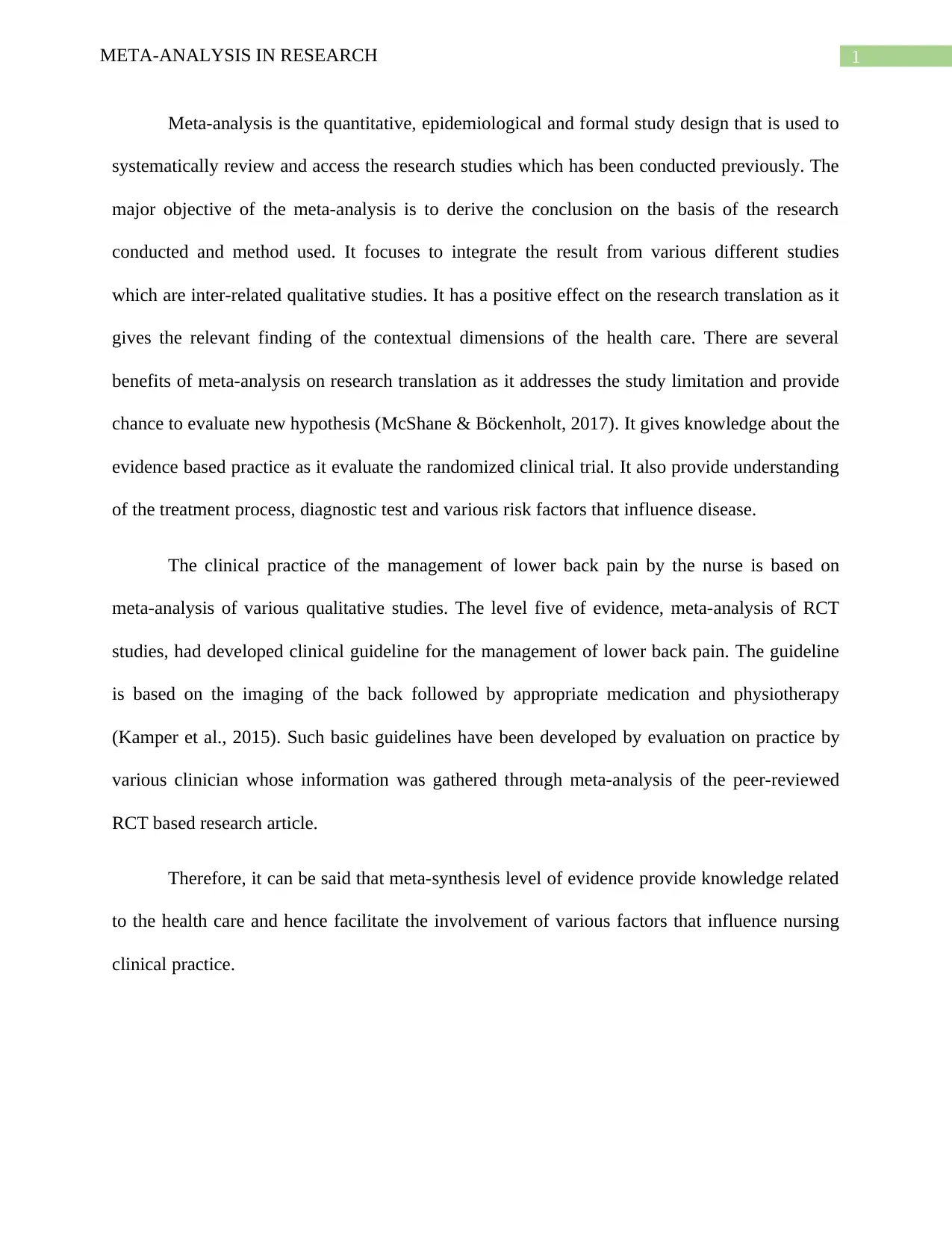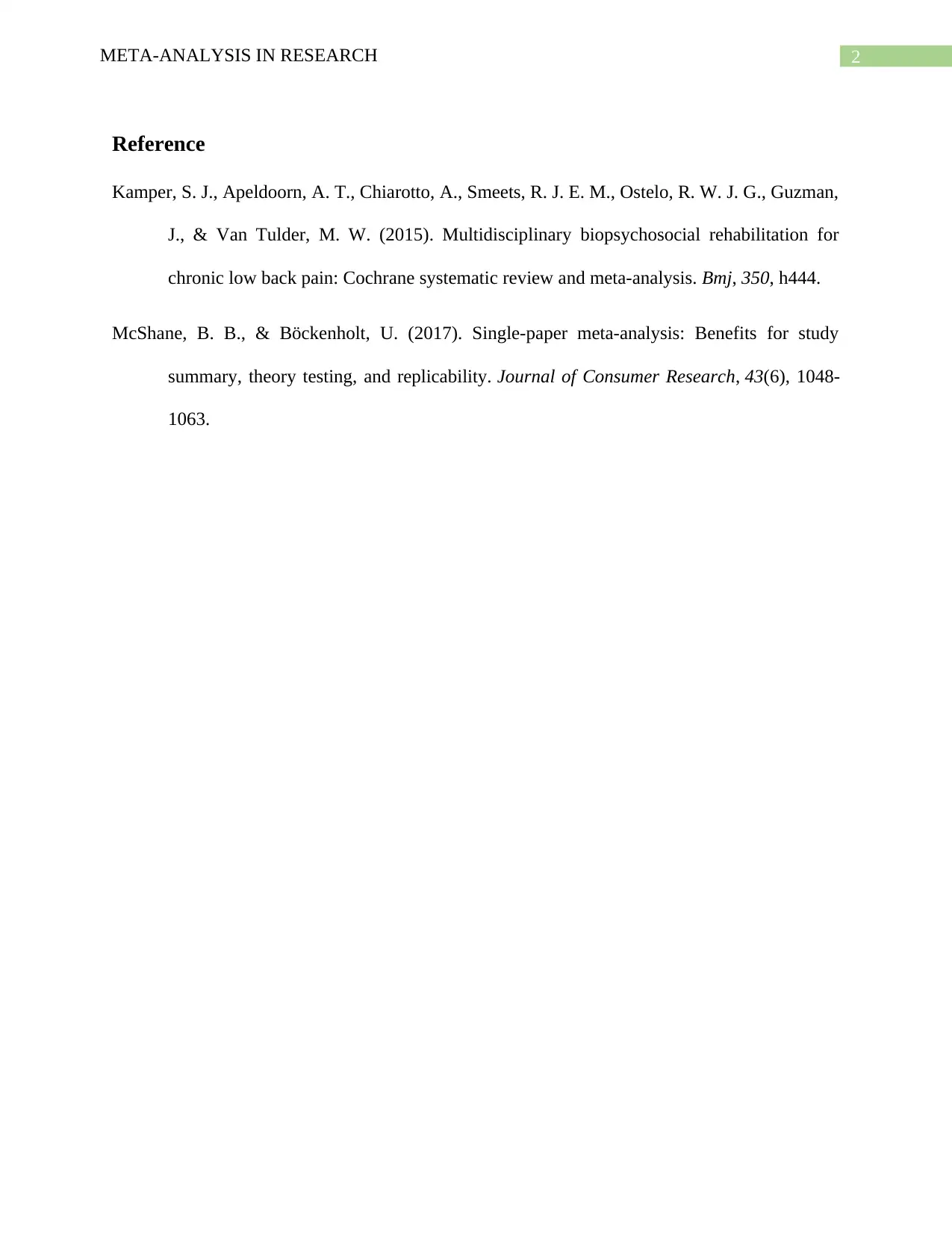Comprehensive Research Report: Meta-Analysis in Healthcare
VerifiedAdded on 2022/11/26
|3
|417
|73
Report
AI Summary
This report provides a comprehensive overview of meta-analysis in research, emphasizing its significance in healthcare and clinical practice. It begins by defining meta-analysis as a quantitative and systematic approach to reviewing and synthesizing research findings from multiple studies. The report highlights the benefits of meta-analysis, including its ability to address study limitations, evaluate new hypotheses, and provide evidence-based practices. It focuses on how meta-analysis integrates the results from various studies, particularly in the context of healthcare. The report also provides a real-world example using the management of lower back pain by nurses, demonstrating how meta-analysis of randomized controlled trials (RCTs) informs clinical guidelines and improves patient care. The conclusion emphasizes the role of meta-analysis in healthcare and nursing clinical practice, facilitating evidence-based decision-making.
1 out of 3










![[object Object]](/_next/static/media/star-bottom.7253800d.svg)